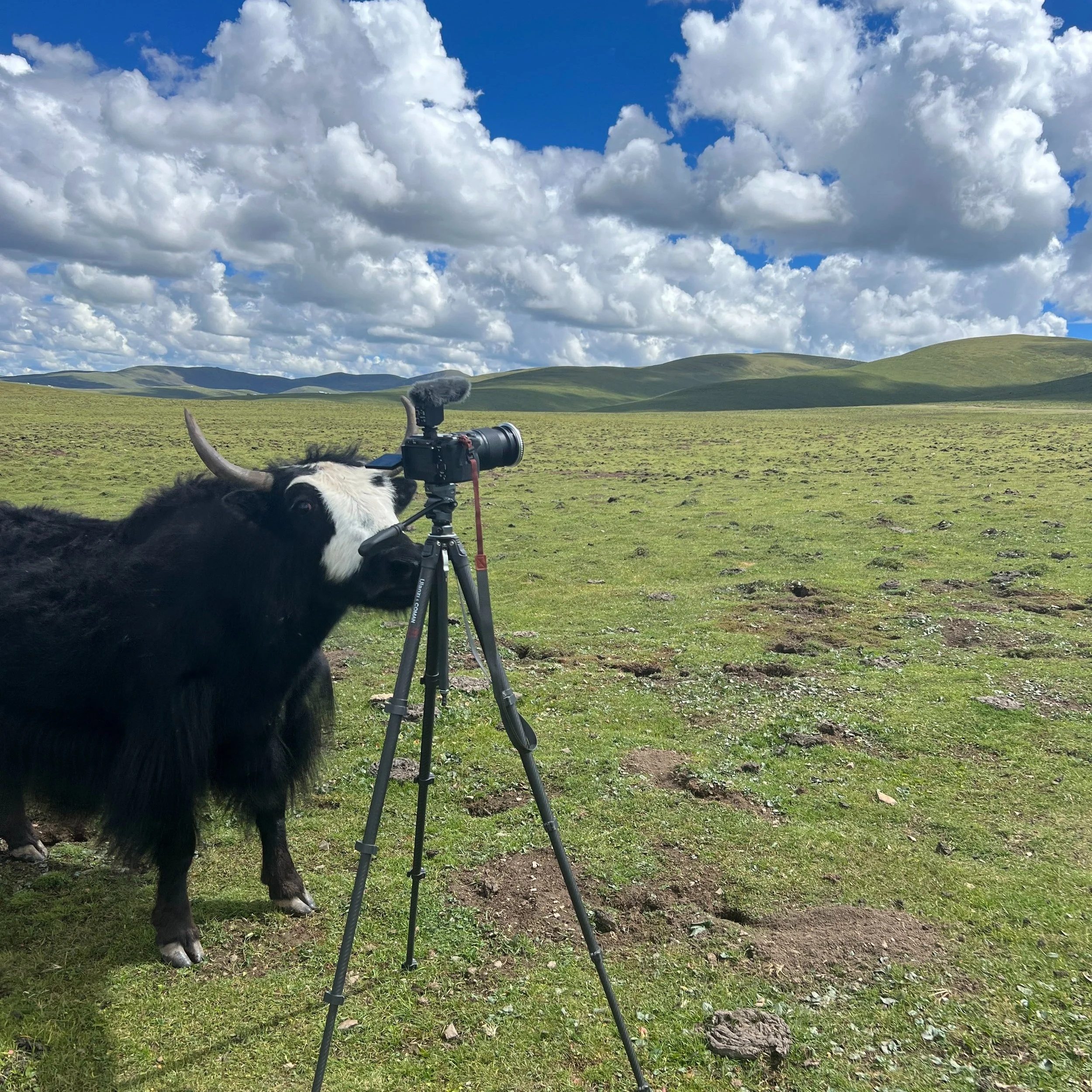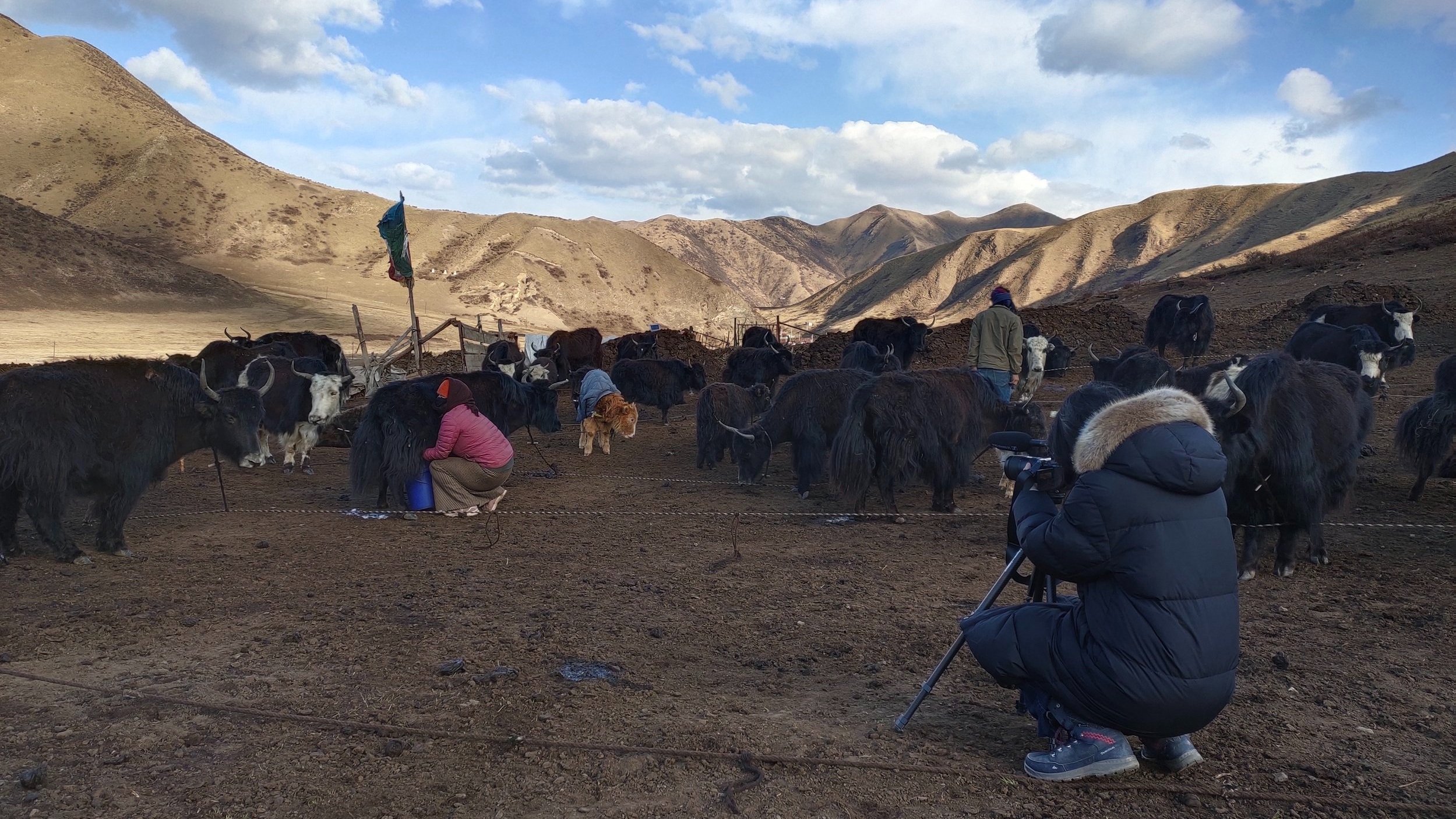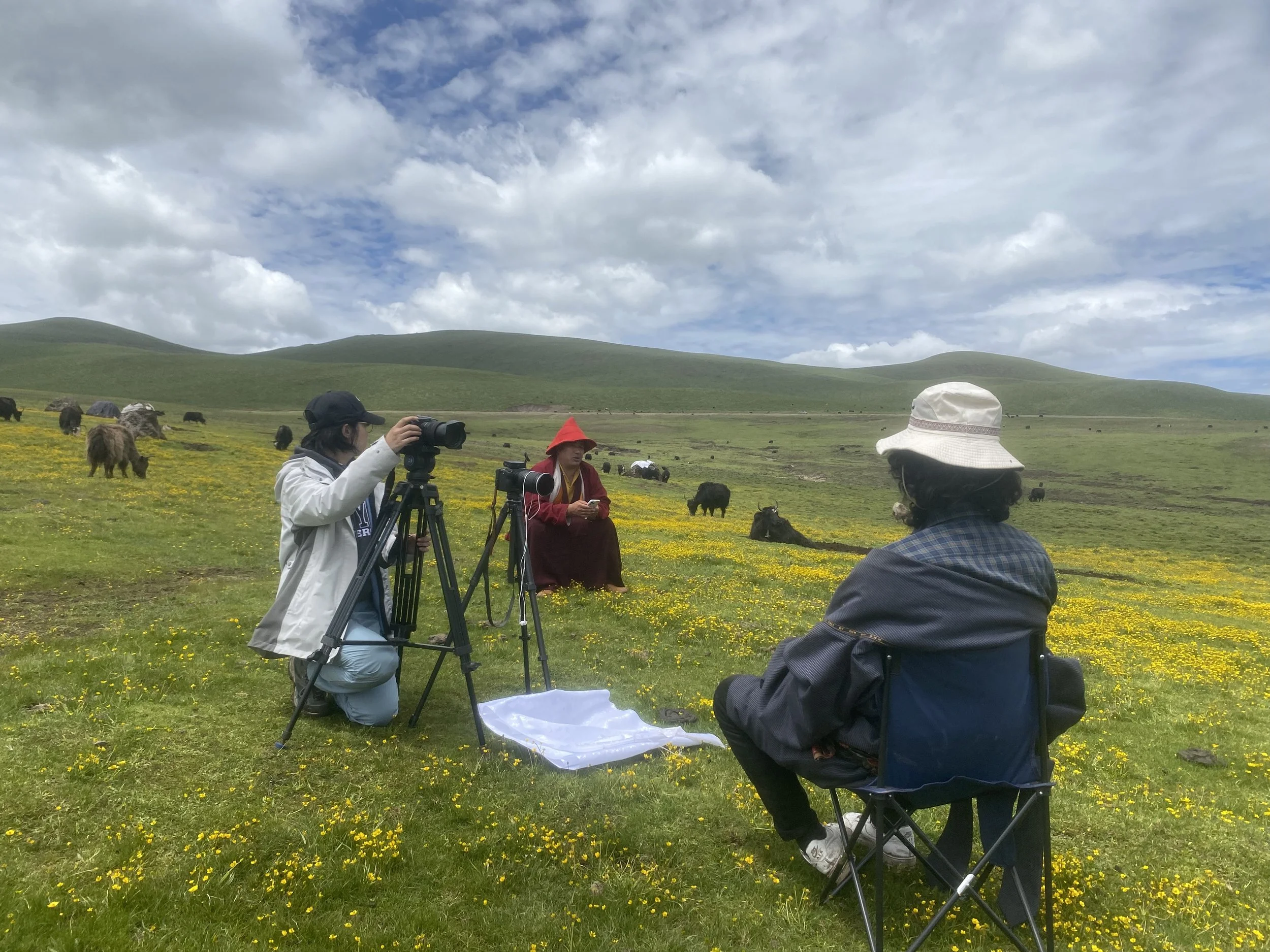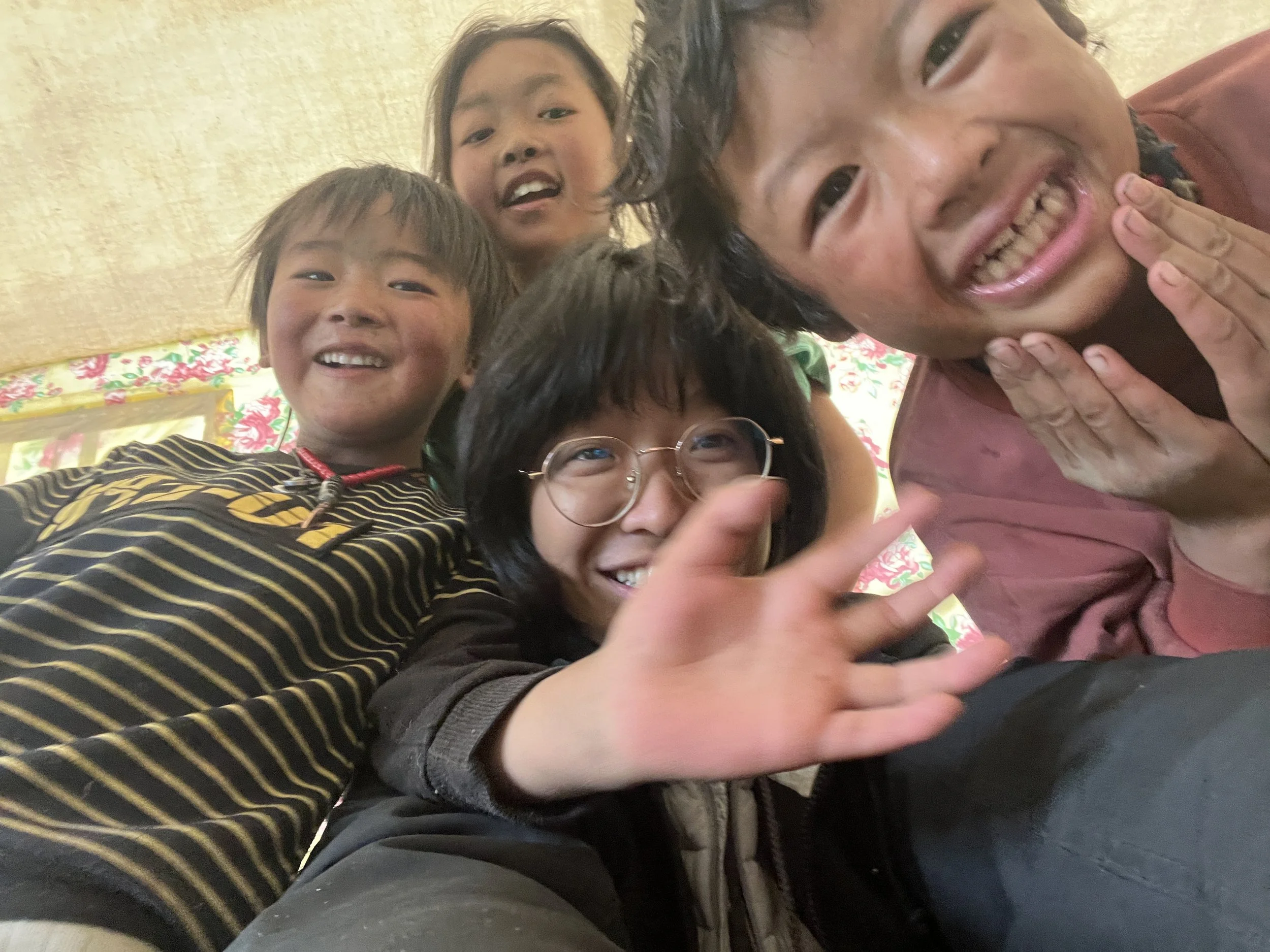MY LENS, MY LAND
U.S.A | Short Documentary | 2024 | 24 mins | Tibetan with English Subtitles
About The Film
Daze, a Tibetan nomad, transformed his life with a camera. Documenting traditions and threats to the homeland, his philosophical films become a call to action, a lifeline for plateau creatures.
Watch My Lens, My Land
For educational distribution or institutional access, please contact RAI Film.
Awards | Selections | Screenings
The 44th Nordic Anthropological Film Association (NAFA) International Ethnographic Film Festival 2025, Museum of Macedonia, Skopje, North Macedonia - Official Selection
The 4th edition of Incontri con il Cinema Buddhista (Encounters with Buddhist Cinema) 2025, Nuovo Cinema Aquila, Rome, Italy - Official Selection
Royal Anthropological Institute Film Festival 2025, Watershed, Bristol, UK - Official Selection: “Dis/placements: Currents of Transition. Local rhythms that disrupt and live in motion amid the impacts of climate and technological change.”
Asian Movie Night Spring 2025, Kino Rotterdam, Netherlands - Screening: “RIPPLES, ECHOES AND WHAT IF THE EARTH WHISPERS”
Colorado Environmental Film Festival 2025, USA - Official Selection
Prague Film Awards 2025, Czech Republic - Finalist (Best Student Documentary)
The 14th “光影纪年“ 中国纪录片学院奖 China Documentary Academy Awards 2024, China – Official Selection
Beijing International Short Film Festival 2024, the UCCA Center for Contemporary Art, China – Official Selection & Screening: "Future Ethics, Return: Geopolitics in Dialogue with Ecology"
Anchorage International Film Festival 2024, USA - Special Jury Award (Outstanding International Short Documentary)
Toronto International Women Film Festival, 21st Seasonal Fest 2024, Canada - Best Short Documentary
The 2024 BAFTA Student Film Awards, UK – Documentary Longlist
NYU News Doc Film Festival 2024, USA - Screening
Director's Statement
As human expansion and climate change shrink natural habitats, the land struggles to rejuvenate. Amidst this fragility, Daze’s camera, a rare presence on the grassland, does more than document; it sparks reflection and quiet action.
The Tibetan nomadic philosophy of living in harmony with all beings, combined with the camera’s power to inspire change, moved me to pick up my own camera. Not just to witness, but to join the conversation between people, land, and the future.
Story Description
My Lens, My Land transports viewers to the remote grasslands of Tibet’s Amdo region, 14,000 feet above sea level, where nomadic Tibetans live in deep harmony with the land and all living beings, guided by their Buddhist beliefs. Through vérité scenes and Daze’s intimate narration, the film reveals the quiet, secluded beauty of his family’s life, deeply attuned to the rhythms of nature.
Yet beneath this serenity lies a fragile truth: since 1984, the grasslands have steadily deteriorated due to an overpopulation of pikas, small, burrowing mammals that damage vegetation and destabilize the ecosystem. Despite decades of government interventions, the degradation continues.
As both a native nomad and filmmaker, Daze has spent years capturing this slow-moving crisis. The camera becomes more than a tool, it reshapes his consciousness. Interweaving his family’s poetic daily life, haunting footage, and tender conversations with his daughter, the film traces his transformation behind the lens. This awakening compels him to act, mobilizing his community to restore balance and heal the land。
Featuring
Daze
He has been a member of the Nyantsog Conservation Association since 2010. After studying filmmaking with From Our Eyes, a nonprofit based in Yunnan, China, he founded his own nonprofit film group, Nyanmecang, in 2014. The name, meaning Nyanbo Yutse Mountain, Eyes, and Family, reflects his intimate bond with the land, observation, and community.
Through films like Yak Dung, Pika, and Homeland, Daze has created a body of work that bridges ecological observation with quiet resistance, echoing from the Tibetan Plateau to audiences around the world. His films are often shot with minimal means but deep insight, revealing the resilience of land and people alike.
Daze and his team rely on public donations to continue their grassroots filmmaking and conservation efforts. They are currently applying for a new round of funding. If you’re interested in supporting their work, feel free to contact me.
Family Members
Dorjee Tso, Kawa Tso, Dawa Tsering, Galang Dawa
Credits
Producer/Director Ke Chen
Cinematographer/Editor Ke Chen
Translators Tenzin Dhargyal, Kawa Tso, Jigme Dorjee, Thupa, Tashi Dhondup, Youdon Kyi, Tsewang Gyal, Ugyen Namgyal
Local Referer Bing Lyu, Tenzin Dhargyal
Executive Producer Marcia Rock
Story Consultant Marcia Rock, Shimon Dotan
Editing Consultant Marcia Rock, Aviva Slesin, Shimon Dotan
Composer Yilun Song
Ending Song Singer Dorjee Tso
Poster Designer Yaoting Wang
Behind the scene
I spent three months living with Daze’s family, first in the summer of 2023 and again in the early spring of 2024. They welcomed me like a sister, and I am grateful for every moment we shared. Even after I returned to New York for school, they continued to send messages asking about my days, closing the distance with small acts of care.
We do not share a common language, and most of our daily conversations depended on gestures, shared routines, and the kindness of those around us. Sometimes it was Kawa Tso, Daze’s daughter, translating between Tibetan and Mandarin. At other times, it was relatives, including one who often travels south for seasonal work and another who is a monk. Friends I met along the way also helped, such as the staff at the local hotel where I occasionally went to recharge my batteries. Kawa Tso studies both Tibetan and Mandarin in elementary school, and just as I was leaving in 2024, she had begun learning English in her new grade.
At the end of 2025, I will return to the grasslands to visit them again and finally share this film with them in person.
On the summer pasture, there is phone signal only during the day, when the sunlight is strong enough to power the solar-run signal tower. As soon as the sun sets behind the mountains, the electricity fades and the phones go quiet. On the winter pasture, which lies much closer to town, the signal stays steady and daily life becomes more convenient. But out there, convenience is never what matters most.
























